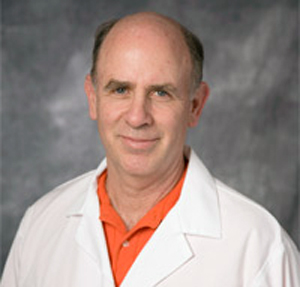Philip G. Morgan, MD
Scientific Advisory Board, Member
Philip G. Morgan, MD
University of Washington
Scientific Profile
Areas of Specialty: Dr. Morgan is a board certified anesthesiologist with additional expertise in pharmacology, genetics and developmental biology.
Research Interests: Dr. Morgan’s research interests include: the effects of genetic changes and anesthetics on mitochondrial function, the mechanism of action of volatile anesthetics, and the genetic basis of anesthetic sensitivity. Most recently, Dr. Morgan used the genetic model, nematode C. elegans, to determine the correlation between mitochondrial defects and volatile anesthetics. His research has awarded him multiple research grants from the National Institutes of Health (NIH), resulting in numerous peer-reviewed publications, abstracts, and invited lectures. Dr. Morgan’s demonstrated expertise provides a great depth of knowledge to the SmartTots Scientific Advisory Board.
SmartTots
Scientific Advisory Board, Member
University of Washington
Professor, Anesthesiology and Pain Medicine
Seattle Children’s Hospital
Director of Research, Department of Anesthesiology
Education
University of Colorado Medical School, Denver – MD (1980)
University of Colorado, Boulder – MA, Molecular Biology (1975)
California Institute of Technology – BS, Engineering (1971)
Training
Research Fellowship, University of Washington (1985-1986)
Pediatric Anesthesia Fellowship, University of Washington (1984-1986)
Research Fellowship, University Hospitals of Cleveland (1983-1984)
Anesthesiology Residency, University Hospitals of Cleveland (1981-1984)
Pediatrics Internship, University of California, San Diego (1980-1981)
Professional Affiliations
- International Anesthesia Research Society
- American Society of Anesthesiologists
- Ohio Society of Anesthesiologists
- Cleveland Society of Anesthesiologists
- American Heart Association (Neonatal Resuscitation Instructor)
- Society for Pediatric Anesthesia
- Association of University Anesthesiologists
- Allen Library, Lifetime Fellow
Selected Publications
Steele LM, Morgan PG, Sedensky MM. Alternatives to mammalian pain models 1: use of C. elegans for the study of volatile anesthetics. Methods Mol Biol 2010;617:1-17.
Falk MJ, Rosenjack JR, Polyak E, Suthammarak W, Chen Z, Morgan PG, Sedensky MM. Subcomplex lambda specifically controls integrated mitochondrial functions in Caenorhabditis elegans. PLoS One 2009;4(8):e6607.
YY, Gangoiti JA, Sedensky MM, Morgan PG. The effect of different ubiquinones on lifespan in Caenorhabditis elegans. Mech Ageing Dev 2009;130:370-6.
Suthammarak W, Yang, YY, Morgan PG, Sedensky MM. Complex I function is defective in Complex IV-deficient Caenorhabditis elegans. J Biol Chem 2009;284:6425-35.
Sedensky MM, Morgan PG. Genetics and the Evolution of the Anesthetic Response. Anesth Analg 2008;107:855-858.
Falk MJ, Zhang Z, Rosenjack JR, Nissim I, Daikhin E, Nissim I, Sedensky MM, Yudkoff M, Morgan PG. Metabolic pathway profiling of mitochondrial respiratory chain mutants in C. elegans. Molec Genet Metab 2008;93(4):388-97.
Recent Research Funding
-
Mechanism of action of volatile anestheticsNational Institutes of Health (2008-2011)Principal Investigator
-
Mitochondrial effects on sensitivity to anestheticsNational Institutes of Health (2006-2010)Co-Principal Investigator
-
Anesthetic effects in mitochondrial diseaseNational Institutes of Health (2006-2009)Principal Investigator
-
Interaction of ubiquinone and complex I control longevityNational Institutes of Health (2005-2010)Principal Investigator
